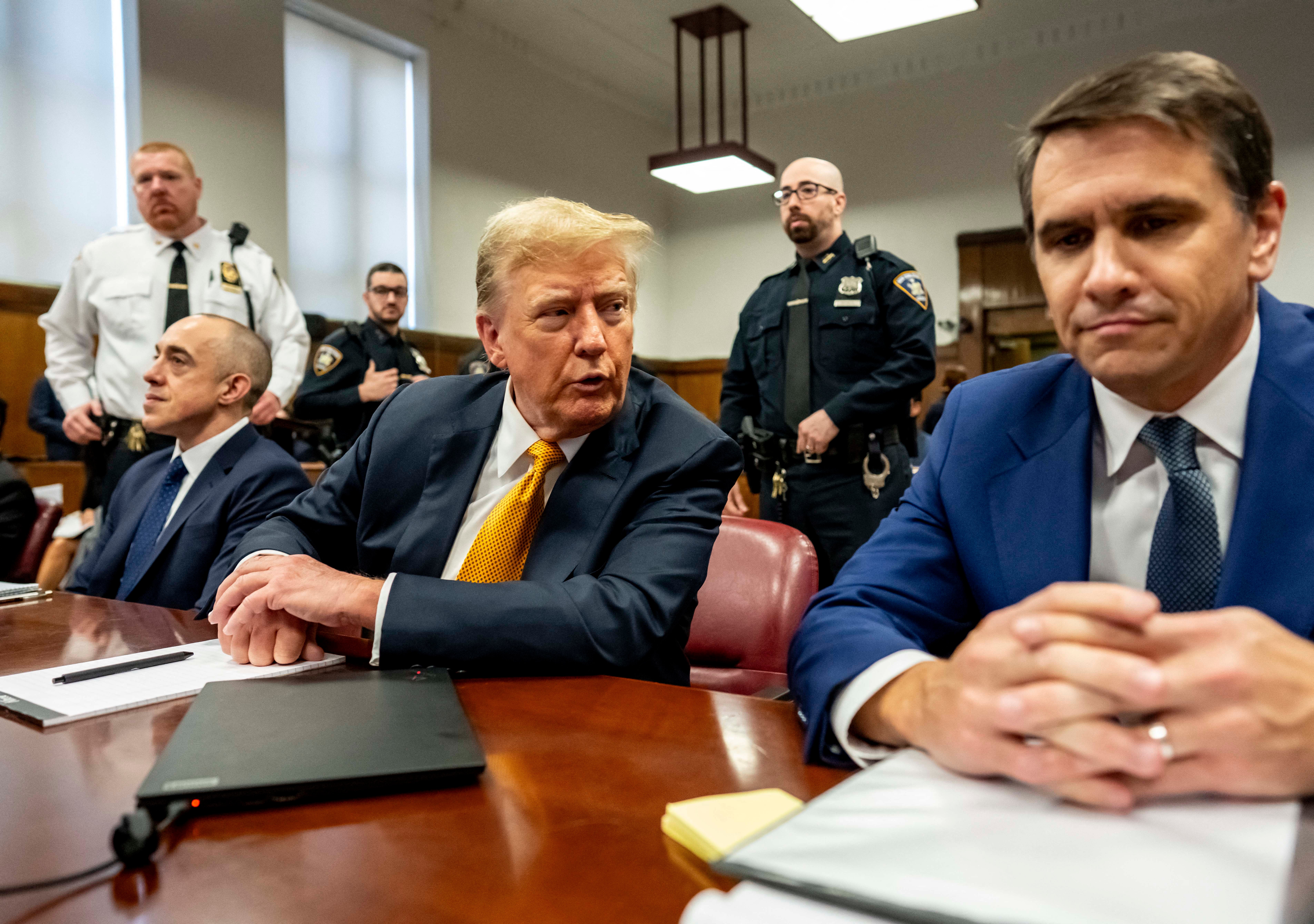Manhattan prosecutors are urging the judge overseeing Donald Trump’s criminal hush money trial to reject his attempts to toss out his conviction and derail his sentencing.
But District Attorney Alvin Bragg and his team do not oppose a delay in the proceedings so they can address Trump’s upcoming arguments to dismiss the case, according to a letter to New York Justice Juan Merchan on Tuesday.
Trump’s sentencing was initially scheduled for next week, on November 26, roughly three weeks after he won the 2024 presidential election. He will return to the White House on January 20, potentially upending the multiple criminal and civil cases against him.
Prosecutors have also floated delaying a sentencing hearing until 2029, “after the end of Defendant’s upcoming presidential term.”
While prosecutors are “mindful of the demands and obligations of the presidency” and understand that Trump’s return to the White House “will raise unprecedented legal questions,” they also “deeply respect the fundamental role of the jury in our constitutional system.”
Bragg’s office has asked to respond to Trump’s motion to dismiss the conviction no later than December 9.
“This is a total and definitive victory for President Trump and the American People who elected him in a landslide,” Trump’s communications director Steven Cheung said in a statement. “The Manhattan DA has conceded that this Witch Hunt cannot continue. The lawless case is now stayed, and President Trump’s legal team is moving to get it dismissed once and for all.”
A jury convicted the former president on all 34 felony counts of falsifying business records on May 30.
Last week, Merchan agreed to postpone a decision on whether to toss the case on “immunity” grounds stemming from a landmark Supreme Court ruling, giving prosecutors a week to decide their next steps.
Trump, meanwhile, has nominated his two lead defense attorneys in the case to top roles at the Department of Justice, where they will be responsible for the day-to-day operations of the nation’s federal law enforcement agencies.
Todd Blanche is nominated for deputy attorney general, the second highest role in the Justice Department, while Emil Bove has been selected as principal deputy attorney general. He could be acting deputy attorney general while Blanche is awaiting confirmation in the Senate.
If confirmed, Blanche could serve as deputy attorney general to far-right Trump ally Matt Gaetz, who Trump has nominated for attorney general, a role that Trump is likely to see as a vehicle for targeting the judges and prosecutors overseeing the mountain of litigation against the former president.
The lawyer who won Trump his biggest court victory yet — D. John Sauer, who argued in front of federal appeals court judges and the Supreme Court to shield Trump from criminal prosecution, derailing Trump’s federal election interference case and hush money convictions — was awarded with the role of solicitor general.

A jury found Trump guilty of falsifying business records in connection with a scheme to silence adult film star Stormy Daniels, whose story about having sex with Trump threatened his 2016 presidential campaign.
Trump’s then-attorney Michael Cohen paid Daniels $130,000 for the rights to her story; Trump repaid Cohen in a series of payments, including in checks signed from the White House in the early months of his presidency, the true nature of which were concealed in the Trump Organization’s accounting records.
Those reimbursements were falsely recorded in accounting records as “legal expenses.”
Trump — whose campaigns relied on a narrative of political persecution and retribution against a justice system he accuses of conspiring against him — continues to insist he has done nothing wrong.
The Supreme Court’s decision partially shields Trump and any other presidents from criminal prosecution for actions considered “official” duties while in office, and provides a presumption of “immunity” for acts in the “outer perimeter” of those “official” duties.
There is no immunity, presumptive or otherwise, for a president’s “unofficial” acts, according to the Supreme Court.
Hours after the Supreme Court’s ruling on July 1, Trump’s attorneys argued that several pieces of evidence used against him during the hush money trial fall under the scope of the high court’s decision.
In response, Manhattan prosecutors asked the judge to keep the verdict in place, arguing that the Supreme Court’s ruling has “no basis for disturbing the jury’s verdict.”
Trump was a private citizen when he arranged a scheme with Cohen to pay Daniels, they argued.
Evidence that could be considered shielded under the Supreme Court’s “immunity” decision “constitutes only a sliver of the mountains of testimony and documentary proof that the jury considered in finding him guilty of all 34 felony charges beyond a reasonable doubt,” Assistant District Attorney Matthew Colangelo wrote in a filing this summer.






